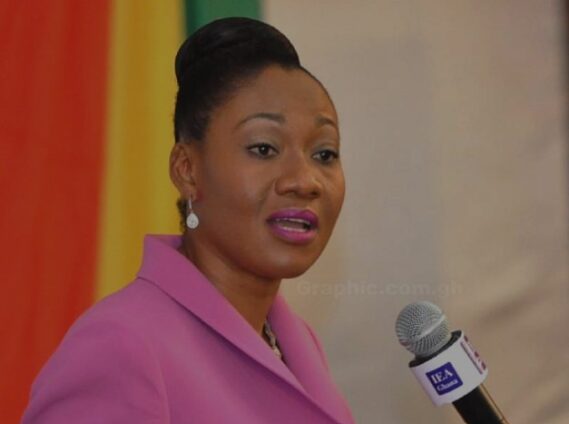The Electoral Commission (EC) has outlined critical updates ahead of Ghana's upcoming general elections during an Inter-Party Advisory Committee (IPAC) meeting held on November 29, 2024.
The discussions centered on collation procedures, accreditation processes, and addressing shortfalls in ballot papers.
Collation and accreditation updates
To enhance the integrity of the collation process, the EC has appointed Collation Officers at the constituency and regional levels to assist Returning Officers.
These officers, selected from candidates with backgrounds in statistics, accounting, finance, and other quantitative disciplines, will independently conduct electronic collation of polling station results using an Excel format provided by the Commission. This method will operate alongside manual collation by Returning Officers to ensure accuracy.
The collation process at the regional level will occur at the Commission’s regional offices, while the national collation will take place in Accra, at a location soon to be disclosed to political parties and agents of presidential candidates.
Regarding accreditation, political parties and presidential candidates will have two agents each at constituency and regional collation centers. Additionally, domestic and international observers and media houses will receive accreditation to cover the collation processes at all levels.
Discussions with the Ghana Journalists Association (GJA) and the Ghana Independent Broadcasters Association (GIBA) are ongoing to determine the number of media outlets accredited per collation center.
Ballot paper shortfalls and discrepancies
The EC also addressed concerns about shortfalls and discrepancies in ballot papers reported in regions such as Volta and Bono. These issues were highlighted through the Commission’s accountability mechanisms, which involve verifying ballot papers received in the regions to ensure they match the original statistics provided to political parties and printers.
The EC emphasized that such reviews are standard procedure to detect and rectify issues before Election Day. Regional staff discovered these shortfalls, and the Commission ordered reprints to address them, informing political parties and presidential candidates of the situation to ensure transparency.
Similar shortfalls were identified and resolved in Greater Accra, Western North, Upper West, Western, and Bono East regions. Political parties were notified, and faulty ballot papers were destroyed, with reprints conducted to cover the discrepancies.
The EC reaffirmed its commitment to maintaining transparency and accountability throughout the electoral process, ensuring that all materials are accurate and intact for Election Day.
Latest Stories
-
Government reclaims Asenayo Forest Reserve from illegal miners
34 minutes -
NIB boss honoured as Peace Ambassador for commitment to unity and justice
41 minutes -
Cedi appreciation to slash Ghana’s debt stock by 10% ahead of MPC meeting – JoyNews Research
52 minutes -
‘The market women will lead the order’ – Accra Mayor’s new approach to reclaim choked business district
1 hour -
‘I’m bringing back the Red Line’ – Accra Mayor vows to decongest Accra streets for good
2 hours -
Can Mandela’s former negotiator charm Donald Trump?
2 hours -
UN court backs E Guinea in Gabon dispute over islands in oil-rich waters
2 hours -
Tanzania president warns ‘meddling’ Kenyan activists
3 hours -
Nigeria’s fierce political rivals share joke at pope’s inaugural mass
3 hours -
World-first gonorrhoea vaccine launched by NHS England as infections soar
3 hours -
EU plans €2 fee on small parcels in hit to Shein and Temu
3 hours -
Doubts over whether Brits can use EU e-gates this summer
3 hours -
Trump pressures Republicans to back his ‘big beautiful’ tax bill
4 hours -
Zelensky accuses Russia of ‘buying time’ to stall truce talks
4 hours -
Man who helped smuggle more than 3,000 people into Europe jailed
4 hours

